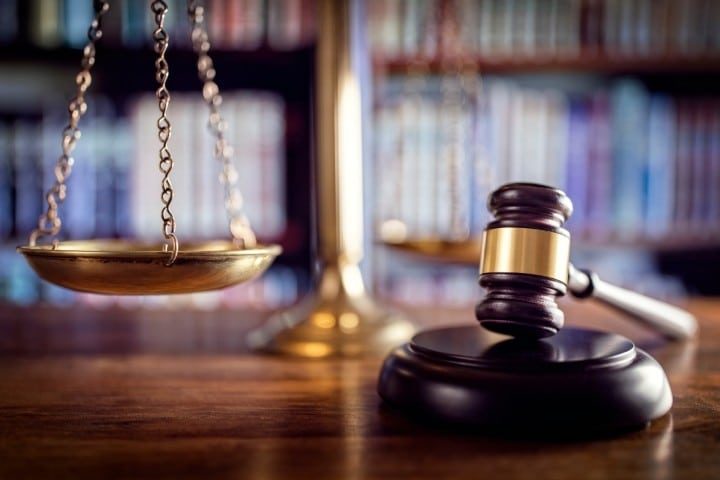
Cancel culture is a doubled-edged sword. And Yale law graduates, 400 of whom shut down a free-speech event earlier this year, may learn this the hard way now that 14 federal judges are taking a stand against their wokeness:
They have vowed not to hire law clerks from the intellectually degraded Ivy League school.
Breitbart reports on the story:
Judge Elizabeth Branch has become the 14th federal judge to refuse to hire law clerks from Yale over free speech concerns….
Branch, who serves on the 11th Circuit Court of Appeals in Atlanta, told the outlet that she is joining the boycott launched by fellow Donald Trump-appointed Judge James Ho, of the New Orleans-based 5th Circuit Court of Appeals.
“My friend, Judge Jim Ho, recently raised legitimate concerns about the lack of free speech on law school campuses, Yale in particular,” she said. “Like Judge Ho, I am gravely concerned that the stifling of debate not only is antithetical to this country’s founding principles, but also stunts intellectual growth.”
“Accordingly, I accept Judge Ho’s invitation to join him in declining to consider students from Yale Law School for clerkships with me, with an exception for past and current students,” Judge Branch added.
On September 29, Judge Ho announced his boycott of law clerks from the ivy league university in a speech, titled, “Agreeing to Disagree — Restoring America by Resisting Cancel Culture,” at a Federalist Society conference in Kentucky.
“Yale not only tolerates the cancellation of views — it actively practices it,” Judge Ho said. “Starting today, I will no longer hire law clerks from Yale Law School. And I hope that other judges will join me as well.”
This is a serious shot across Yale’s bow. Consider what the Washington Free Beacon relates: “‘Students should be mindful that they will face diminished opportunities if they go to Yale,’ said a prominent circuit court judge, whose clerks have gone on to nab Supreme Court clerkships. ‘I have no confidence that they’re being taught anything.’”
Ho’s speech “was even more harsh,” writes the blog Behind the Black, before relating his words:
“Yale presents itself as the best, most elite institution of legal education. Yet it’s the worst when it comes to legal cancellation.” The school “sets the tone for other law schools, and for the legal profession at large. I certainly reserve the right to add other schools in the future. But my sincere hope is that I won’t have to. My sincere hope is that, if nothing else, my colleagues and I will at least send the message that other schools should not follow in Yale’s footsteps.”
Ho wasn’t exaggerating about Yale’s environment. As Behind the Black also informs:
In 2015 students demanded the firing of two administrators because each had defended the idea of free speech. In 2016 students demanded that Yale stop teaching English literature.
These events were only preliminaries to the complete takeover of the blacklist culture in 2021. In February 2021 students and professors at the college pushed a petition to revoke the degrees of all well known Republicans. That same spring law school administrators threatened two students with blackballing if they didn’t write false complaints against a teacher those administrators wanted to get rid of. Then, in October 2021 the school administration attacked a student for something he had written as well as his membership in The Federalist Society.
This was followed in March 2022 by a mob of more than 100 Yale law students attempting to shut down a panel on civil liberties, with the school’s administrator refusing to take any action.
While the 14 judges’ actions are just a start — and will come to naught if the Left continues transforming the judiciary — such pushback matters. As commentator Monica Showalter points out, these Yale
grads go on to the fanciest clerkships and internships in the legal world, including serving as clerks to Supreme Court justices, and after that, take bigtime prestigious positions in fancy law firms, government office, and the administrative state. In short, they go on to be “our rulers” over other law school grads who may be just as smart, but don’t have that Yale imprimatur.
It’s quite amazing, in fact, how much of the country has been shut out from its own governance based on not having those ivy league degrees.
Now that they are rolling in like tantrum-y toddlers and screaming teenagers to those prestigious positions, there’s obviously an embarassment [sic] factor — law school grads who can’t use legal reasoning, law school grads who, like hothouse flowers, can’t flourish in atmospheres of diverse opinions and points of view, and law school grads who exhibit the utmost in unprofessional behavior, not even being able to keep their disgust to themselves, one judge said ‘no’ — and a string of other judges followed him. Those, by the way, are the ones who have declared this intention — for every judge who has, there are likely many more who haven’t yet who simply won’t give these applicants the time of day. They just don’t say so.
Yes, these would-be betters are actually our “worsers” — and Yale is, of course, far from alone. The truth is that academia is a mere shadow, a wicked one, of what it once was. Almost a generation ago already, “higher education” offered courses such as UC-Berkeley’s “Sex Change City: Theorizing History in Genderqueer San Francisco” and Amherst College’s “Taking Marx Seriously: ‘Should Marx be given another chance?’”
The vaunted “Ivy League” is only perhaps somewhat better, too. Such schools’ reputations are based on distant-past glories, having long ago been struck by an intellectual neutron bomb: The buildings are all still standing and are as majestic as ever — but the people are brain dead.
The irony is that most American colleges/universities were founded as Christian institutions; Yale is no exception, having been created by clergy in 1701 to educate congregational ministers. Yet, as William F. Buckley lamented in his 1951 book God & Man at Yale, the university had even at that time already dispensed with most of its Christian roots.
This isn’t to say these colleges don’t still receive supernatural inspiration. Now, however, their source is very, very different.



